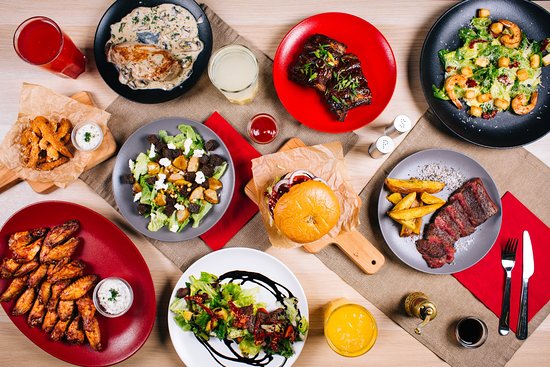
See Food Nutrition and Learn to Cook Healthy
Food is any material prepared from living matter to supply nutritional support to the organisms. Food is generally of plant, animal or fungi origin, and has various essential nutrients, including proteins, carbohydrates, vitamins, or iron. Plants contain chlorophyll and photosynthesis reactions to produce food, whereas animals to produce meat or milk and need certain enzymes to break down protein. Fungi are capable of producing food through the process of biogenesis. Animal foods include milk, eggs, fish, poultry, plants, meats, dairy products and fruits.
A well-balanced diet is necessary to keep the body healthy. The human body needs a range of essential nutrients to maintain normal functioning. Common dietary fibre forms the majority of the nutrient intake of the human body, with the remainder coming from carbohydrates, protein and essential fats. The five main food groups are: carbohydrates, protein, vegetables, fruit and nuts.
With today’s increased levels of stress and tension, many people have reduced intake of carbohydrates and increased consumption of unhealthy fatty foods and sugar. This has had an adverse effect on nutrition. However, the optimum level of nutrition depends on the type of food we eat and how it is prepared. Most of us eat foods that are high in calories. Yet this should not be the basis for choosing a healthy meal, but rather, choose a diet that comprises a balance of these nutrients.
Animal products consist of meats, milk and eggs, with smaller quantities of vegetables, grains, nuts, seeds and fruits. Fruits and vegetables are naturally low in calories, although they do contain some nutrients that are destroyed during processing. Cereals, beans and legumes are rich in protein and can provide a good source of carbohydrates. Meat and processed meats contain no nutrients, whereas fresh fish and dairy products contain good sources of fats and protein. It is important to include cereals, beans and legumes in the diet, while cutting back on oily foods such as oils, spreads, margarine and butter.
The problem lies with eating too much of the wrong food. It is important to balance the amount of fat, protein and carbohydrates consumed. The typical western diet is heavy in fats and carbohydrates, with very little in the way of fruits and vegetables. If you want to see food nutrition, it is important to eat a balanced diet that consists mainly of vegetables and a small amount of fruit and grains.
However, when a person eats too many carbohydrates and fats, this leads to weight gain and a poor metabolic rate. This, in turn, weakens the body and makes it prone to diseases. In order to avoid obesity and overweight, people need to eat enough vitamin A. Vitamin A protects the body against the effects of free radicals that cause diseases. It also increases the metabolism, which in turn helps burn up fat. Apart from fruits, vegetables are the best source for vitamin A.